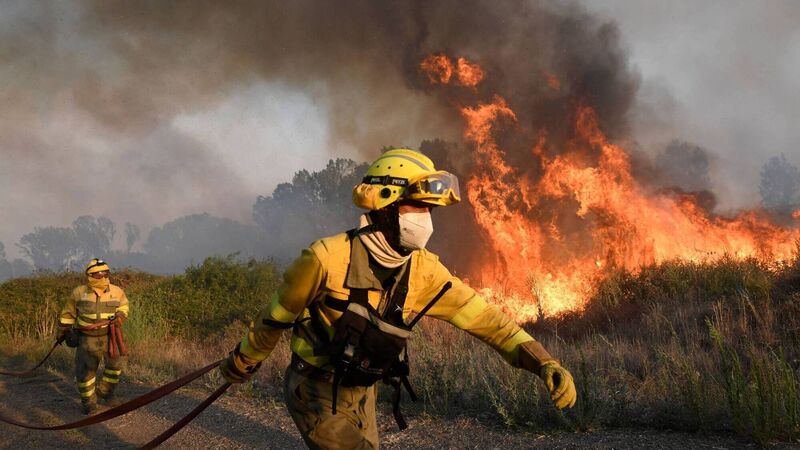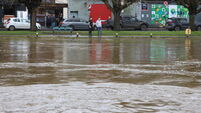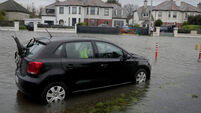Europe burns and fires rage across London as 40C exceeded

Firefighters try to extinguish a wildfire next to the village of Tabara, near Zamora, northern Spain. Picture: Miguel Riopa/Getty Images
Fires raged across London as Britain shattered its high-temperature records, while the heatwave across continental Europe continued on its raging path.
The London Fire Brigade declared the English capital as a "major incident" zone following a number of fires, as forecasters ominously predicted temperatures could go as high as 42C, having broken the 40C mark for the first time.
Check out the Irish Examiner's WEATHER CENTRE for regularly updated short and long range forecasts wherever you are.














